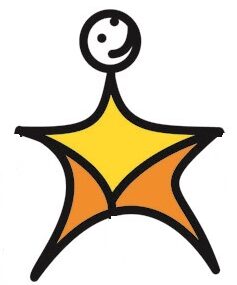It is better to assist people to fish than to give them fish.

It is also better to promote trade than aid within grassroots communities by enhancing access to capacity building, capital formation and credit.
Aid promotes the dependency syndrome, while trade promotes poverty alleviation, through Self Reliant Development and entrepreneurship.
Instead of helping someone out of poverty by giving out handouts, it is better to give them access to credit, through a revolving fund. This will discourage the dependency syndrome and promote self reliance development and trade.
To address the above issue directly, LINK-UP has established the Grassroots Digital Finance Hubs (GDFHs) as part of its Development Finance Initiative
The Grassroots Digital Finance Hubs (GDFHs) for Struggling Micro Entrepreneurs, designed to provide digital and physical financial products and services for the unbanked grassroots struggling individuals of the informal economy, to overcome financial access barriers and contribute to improving income equality, financial inclusion and alleviate abject poverty.
Goals to;
- Promote innovative approaches to building a supportive ecosystem for micro entrepreneurs, aimed at improving access to finance, as they are considered “un-bankable” through short term cash flow loans.
- Set up the GDFHs loan hubs across the operation zones, by creating a permanent revolving loan fund, backed by the necessary digital infrastructure.
- Develop innovative ways to disseminate financial advisory and capacity building services to address constraints, in building bankable and sustainable enterprises and enhance loans repayment.
- Open up new markets for their products or services, through the use of digital technology.
- Integrate their activities into the value chain production system and ensure that they conform to climate change and environmental protection efforts.
Given the importance of a strong enabling environment to strengthen Micro Entrepreneur’s ability to access capacity building and financing, the goals of the initiative are achieved through inclusive regulatory policies, the presence of catalyst structures, like this, with sustainable programs to assist micro entrepreneurs in their growth, through Self Help Development Groups. (SHDGs)
The SHDGs, such as common initiative groups, associations or cooperatives, etc. play an important role in promoting the development of micro enterprises and strengthen them to achieve growth. However, as critical as they are to their development, they often have limited capacity to support their members, due to lack of value-added services, funding and access to capacity building, key networks, which significantly affect their development and sustainability.
Thus, as part of efforts to enhance the business enabling environment, this initiative will through these Catalyst Structures, strengthen the skills, wealth creating capacity and create innovative and effective upward changes in their development and business culture.
This initiative therefore, aims at mobilizing and establishing digital savings/credit hubs for struggling micro entrepreneurs of the lowest income bracket, through organized Self Help Development Groups (SHDGs) that provide group training, group collateral to members as a means to access credit and administered by group members themselves.
The SHDG include Internally Displaced Persons (IDPs) who identify themselves in such groups with the aim of improving their livelihoods, economic wellbeing and the situation of the children in their care.
This group model, gains supremacy over other development financial access models due to its strong direct community involvement, as a system created by grassroots communities, owned, control and managed by them in keeping with their local realities, internal rules and regulations, values, traditions and customs.
With the putting in place of this model, many micro entrepreneurs from minority communities like the Internally Displaced Persons (IDPs), the physically challenged, widows, single mothers, those affected due to COVID 19 will be reached. And will enable them to access financial services to rebuild their lost sources of subsistence or livelihoods.
This initiative has established products and services that provide upward social mobility and looks forward to digitizing their financial transactions/operations, within their local savings/credit groups.
This group model will allow these individuals, generally considered unbanked to satisfy their savings and credit needs and enable them, to have their credit history and score digitized, for further access to financial services from mainstream Financial Institutions.
We look forward to mobilizing these struggling economically active Micro Entrepreneurs, into SHDGs. We also look forward to creating a portfolio to extend loan capital and enhance their access to finance and financial inclusion services. Thus, creating a pathway, to tap into this major segment of the informal economy, still excluded from the mainstream Financial and Banking systems.
This initiative will work in grassroots and rural communities by providing training and cash flow financing services. It will also provide coaching, mentoring, business advisory services and enable them to grow from the informal to the formal sector.
This initiative is particularly very relevant now, especially in the English speaking regions of Cameroon, which are experiencing an ongoing armed conflict and the destruction of livelihoods, as most individuals have become internally displaced or returnees after losing their livelihoods to the warring forces.
